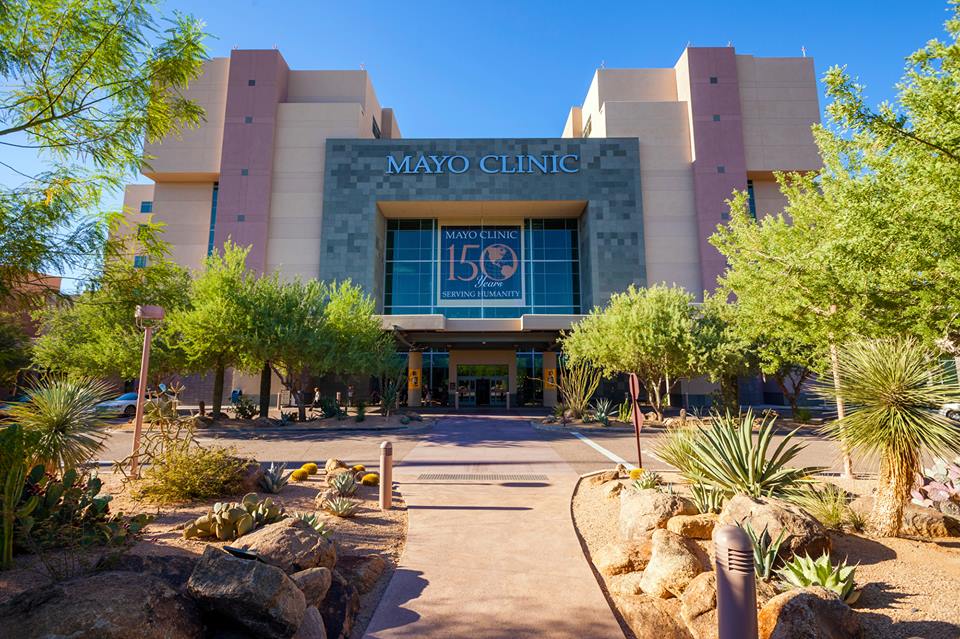 PHOENIX, Arizona – The National Institutes of Health (NIH) renewed funding for the Banner Alzheimer’s Institute (BAI) and Mayo Clinic, Phoenix, longitudinal study of the earliest changes associated with the risk of developing Alzheimer’s disease at older ages. The award, an estimated $8.3 million over the next five years, continues NIH’s long-term support of the investigation.
PHOENIX, Arizona – The National Institutes of Health (NIH) renewed funding for the Banner Alzheimer’s Institute (BAI) and Mayo Clinic, Phoenix, longitudinal study of the earliest changes associated with the risk of developing Alzheimer’s disease at older ages. The award, an estimated $8.3 million over the next five years, continues NIH’s long-term support of the investigation.
The study, which began two decades ago, has been examining the subtle brain imaging, memory and thinking changes that occur in healthy late-middle-aged and older adults who have inherited from their parents either one, two or no copies of the apolipoprotein E (APOE4) gene, the major genetic risk factor for developing late-onset Alzheimer’s. Each additional copy of the gene significantly increases a person’s chance of developing the disease.
“We are extremely grateful to the NIH and our wonderful research volunteers for their support,” said Dr. Eric M. Reiman, BAI Executive Director and one of the study’s principal investigators. “From the beginning, this study has been driven by our interest in finding treatments to prevent or end Alzheimer’s as quickly as possible, and to provide the information and tools needed to do just that.”
By studying individuals at three levels of genetic risk, researchers have been able to get a sneak peek at the changes associated with the risk of Alzheimer’s. As study participants begin to reach older ages, researchers hope to further clarify the extent to which characteristic brain imaging and other biological changes are associated with subsequent clinical decline. Additionally, researchers hope to further clarify the number of at-risk persons needed to conduct prevention trials, as well as share this valuable resource with other researchers and further develop the methods needed to test the range of promising treatments as quickly as possible.
This longitudinal study began in 1994, soon after researchers discovered the APOE4 gene’s contribution to the risk of developing Alzheimer’s. They have been following approximately 200 healthy volunteers with varying copies of the APOE4 gene, starting between the ages of about 50-65. Every two years, participants are monitored using an extensive battery of brain imaging, memory and thinking tests. A growing number of participants have also been providing cerebrospinal fluid samples. As many of the volunteers reach older ages, a growing number are now at risk for developing mild cognitive impairment (MCI) and dementia. This disease progression will give researchers the opportunity to characterize the extent of change in various biomarker and cognitive measurements. Data will be used to evaluate potential treatments that could combat amyloid plaques, which are strongly associated with Alzheimer’s, as well as help inform the design of future prevention trials.
“Like Dr. Reiman, I am excited about the opportunity we have been given to help advance the study of preclinical Alzheimer's,” said Richard J. Caselli, M.D., Professor of Neurology at Mayo Clinic in Arizona and the study’s other principal investigator. “We also look forward to the chance to share our data and samples with other researchers to help advance the scientific fight against this terrible disease.”
The study has had a profound impact on Alzheimer’s prevention efforts. It has helped shape the field’s understanding of the progressive brain changes that precede the clinical onset of Alzheimer’s by almost two decades. It has also served as the foundation for the Alzheimer’s Prevention Initiative, an international collaborative formed to accelerate the evaluation of promising but unproven therapies. Data from this longitudinal study has also contributed to the development of the National Institute on Aging and Alzheimer’s Association research criteria for pre-clinical Alzheimer’s. It has also provided key information for the first reconceptualization of Alzheimer’s as a sequence of biological changes that progress over a person’s lifetime.
“By providing insights into the earliest Alzheimer’s-related changes to brain function and structure, this study is contributing to the National Plan to Address Alzheimer’ Disease goal of finding effective interventions by 2025,” said Dr. Neil Buckholtz, of the National Institute on Aging, which leads the NIH research program on Alzheimer’s.
This work also includes researchers from Arizona State University, University of Arizona and the Translational Genomics Research Institute, organizations that are partners in the Arizona Alzheimer’s Consortium. Dr. Eric M. Reiman of Banner Alzheimer’s Institute and Dr. Richard J. Caselli of Mayo Clinic are the two principal investigators.
Alzheimer’s is a debilitating and incurable disease that affects as many as 5 million Americans age 65 and older, according to a number of estimates. Without the discovery of successful prevention therapies, the number of U.S. cases is projected to nearly triple by 2050.
###
About Mayo Clinic
Recognizing 150 years of serving humanity in 2014, Mayo Clinic is a nonprofit worldwide leader in medical care, research and education for people from all walks of life. For more information, visit 150 years.mayoclinic.org, http://www.mayoclinic.org/and newsnetwork.mayoclinic.org.
About Banner Alzheimer’s Institute
Through its research and care, Banner Alzheimer’s Institute (BAI) is dedicated to the goal of ending Alzheimer’s disease without losing another generation. It is helping to launch a new era of Alzheimer’s research—treatment and prevention at the pre-symptomatic stage—and to establish a new comprehensive model of care. Established in 2006 by Banner Health, one of the country’s largest nonprofit health care systems, BAI has a three-fold focus: to conduct revolutionary studies in the detection, treatment and prevention of Alzheimer’s; to set a national standard of patient and family care; and to forge scientific collaborations that bring together institutions and disciplines internationally. For more information, visit banneralz.org.
Media Contacts:
Jim McVeigh, Mayo Clinic, 480-301-4222, mcveigh.jim@mayo.edu
Susan Karesky, Banner Alzheimer’s Institute, 602-625-3250, susan.karesky@bannerhealth.com
Greg Sexton, The Lavidge Company, 480-998-2600, gsexton@lavidge.com








